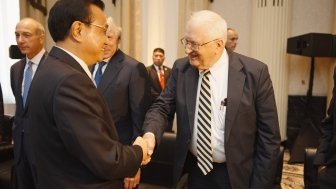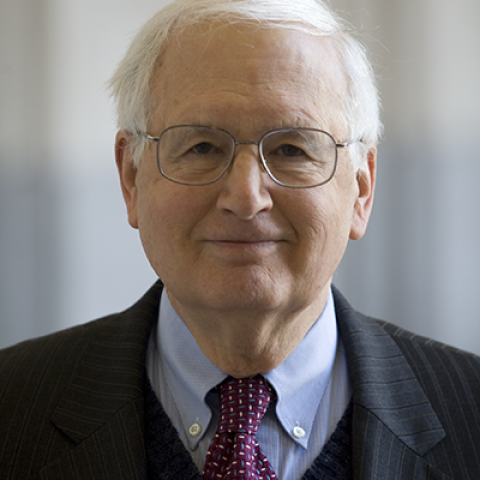Professional Affiliation
Founding Director Emeritus, Kissinger Institute on China and the United States
Expert Bio
Summary
Ambassador J. Stapleton “Stape” Roy is the Founding Director Emeritus and a Distinguished Scholar at the Wilson Center’s Kissinger Institute on China and the United States. From watching the Chinese Civil War from the roof of his school, to participating in the secret negotiations to establish U.S. – P.R.C. diplomatic relations, to serving as Assistant Secretary of State for Intelligence and Research, Roy has lived through, navigated, and studied the development of China and modern Asia for more than 70 years. Holding the rank of Career Ambassador, he has served as the top U.S. envoy to Singapore, China, and Indonesia. A fluent Mandarin-speaker, Roy is widely quoted on political developments in China and East Asia.
Full Bio
Ambassador J. Stapleton (Stape) Roy is a Distinguished Scholar and Founding Director Emeritus of the Kissinger Institute on China and the United States at the Woodrow Wilson International Center for Scholars in Washington, DC. Stape Roy was born in China and spent much of his youth there during the upheavals of World War II and the communist revolution, where he watched the battle for Shanghai from the roof of the Shanghai American School. He joined the US Foreign Service immediately after graduating from Princeton in 1956, retiring 45 years later with the rank of Career Ambassador, the highest in the service. In 1978 he participated in the secret negotiations that led to the establishment of US-PRC diplomatic relations. During a career focused on East Asia and the Soviet Union, Stape’s ambassadorial assignments included Singapore, China, and Indonesia. His final post with the State Department was as Assistant Secretary for Intelligence and Research. On retirement he joined Kissinger Associates, Inc., a strategic consulting firm, before joining the Woodrow Wilson International Center for Scholars in September 2008 to head the newly created Kissinger Institute. In 2001 he received Princeton University’s Woodrow Wilson Award for Distinguished Public Service.
Education
B.A., History, Princeton University; post-graduate study of Mongolian language, history, and culture, University of Washington; U.S. Army Russian Institute, Garmisch-Partenkirchen; distinguished graduate, National War College
Wilson Center Project
"The United States and China: A New Type of Great Power Relationship"
Major Publications
- "Letter from Jakarta," SAIS Review: A Journal of International Affairs, vol. 17(2), Summer/Fall 1997
- "Deng's Reform Movement and the West: An American Perspective," China in the Era of Deng Xiaoping: A Decade of Reform, eds. Michael Yingmao Kau and Susan H. Marsh (M.E. Sharpe, 1993)
- "Political and Economic Prospects for East Asia in the 1990s and Beyond," The Pacific in the 1990s: Economic and Strategic Change, ed. Janos Radvanyi (University Press of America, 1990)
- “The Internal Logic of China’s Political Development,” The Globalist, June 3, 2011
- Review of “Deng Xiaoping and the Transformation of China” by Ezra Vogel, The Wilson Quarterly (Autumn 2011).
Insight & Analysis by J. Stapleton Roy
Filter
- Past event
- Diplomatic History
Remembering Henry Kissinger
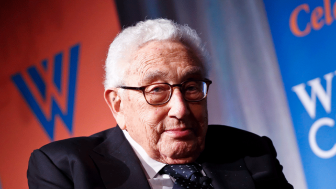
- Article
- US Foreign Policy
On the Horizon 2022 | China
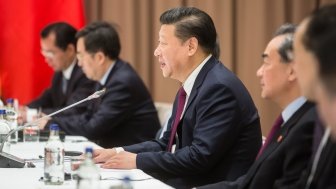
- Article
- US Foreign Policy
Ambassador J. Stapleton Roy Honored at the 2021 U.S.-China Business Council Gala
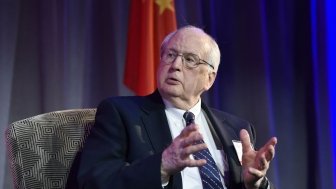
- Past event
China's Leaders: From Mao to Now
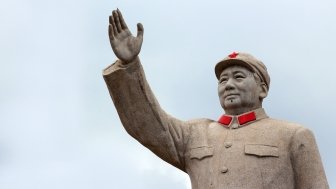
- Article
Read Xi Jinping’s Words in Proper Context
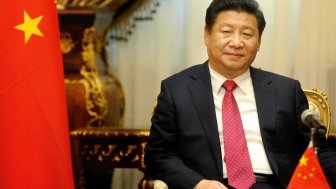
- Past event
- US Foreign Policy
Building Back Diplomacy: The Biden Administration Strides into Asia
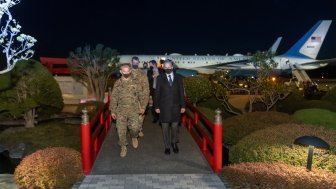
- Past event
Wilson China Fellowship Conference 2021
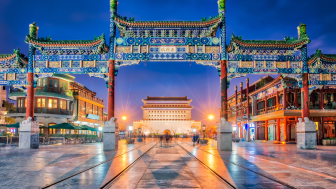
- Article
Keynote Remarks by Ambassador J. Stapleton Roy at the Wilson Center China Fellowship Conference 2021
